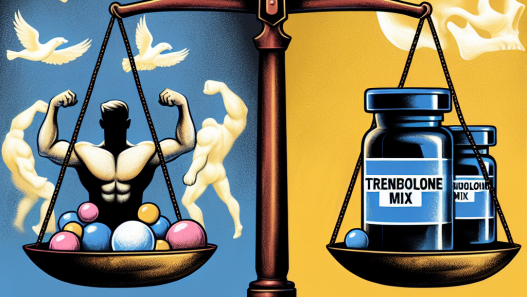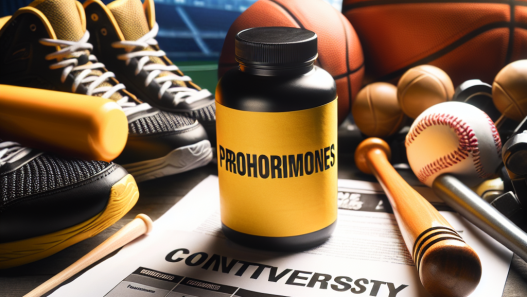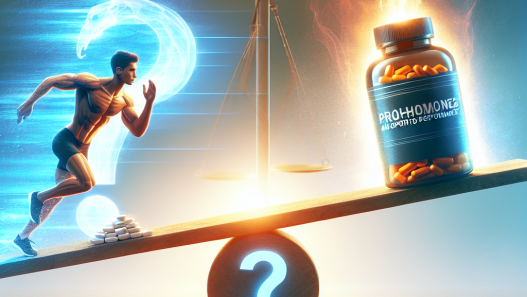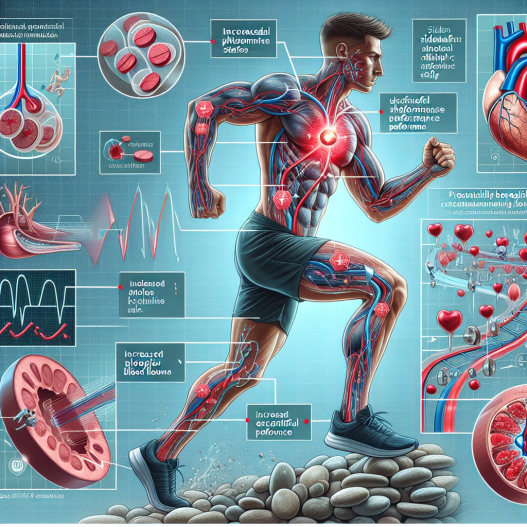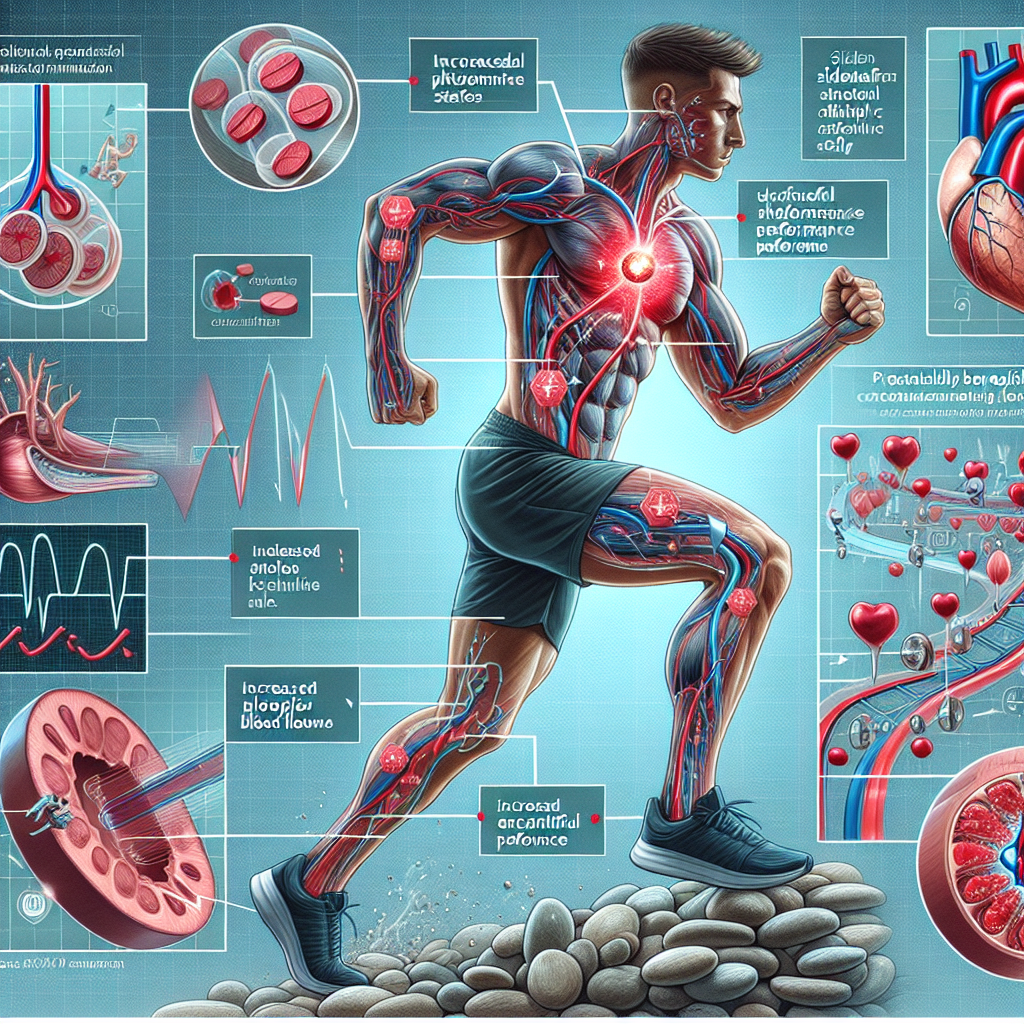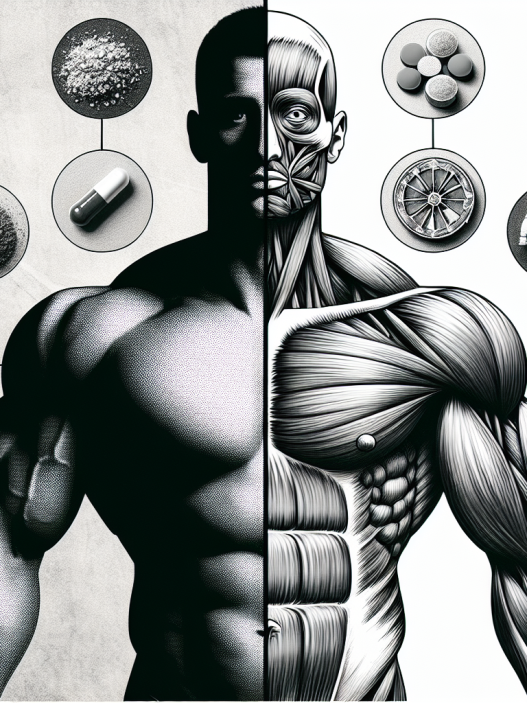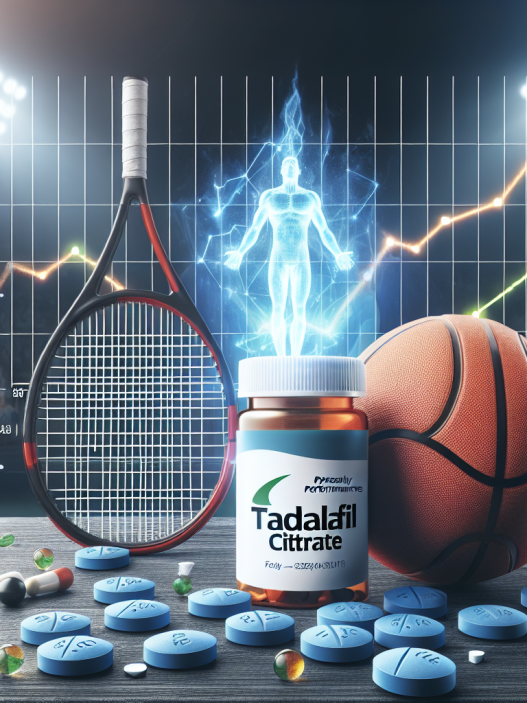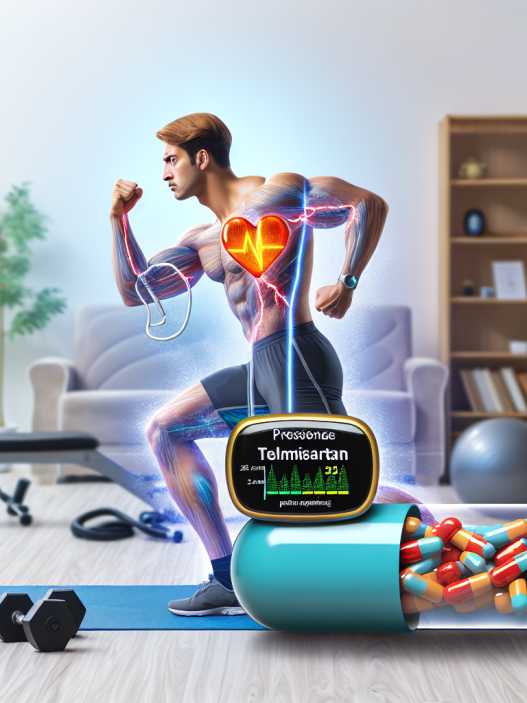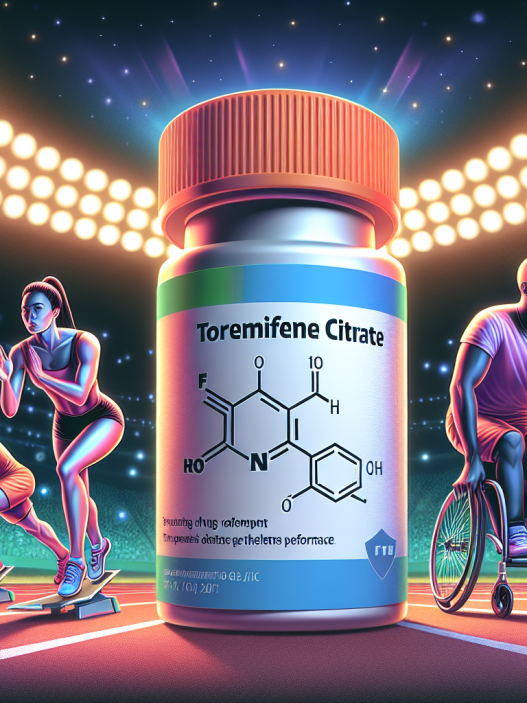-
Table of Contents
- Enhancing Athletic Performance Safely with Sildenafil Citrate
- The Mechanism of Action of Sildenafil Citrate
- The Potential Benefits of Sildenafil Citrate for Athletic Performance
- The Risks and Side Effects of Sildenafil Citrate Use
- Safe Use of Sildenafil Citrate for Athletic Performance
- Conclusion
- Expert Comments
- References
Enhancing Athletic Performance Safely with Sildenafil Citrate
Athletes are constantly seeking ways to improve their performance and gain a competitive edge. While training, nutrition, and rest are crucial factors, the use of performance-enhancing drugs has become a prevalent practice in the world of sports. However, the use of these drugs comes with potential risks and side effects that can harm an athlete’s health and reputation. In recent years, there has been a growing interest in the use of sildenafil citrate, commonly known as Viagra, as a performance-enhancing drug. This article will explore the potential benefits and risks of using sildenafil citrate for athletic performance and provide evidence-based recommendations for its safe use.
The Mechanism of Action of Sildenafil Citrate
Sildenafil citrate is a phosphodiesterase type 5 (PDE5) inhibitor, primarily used to treat erectile dysfunction. It works by increasing blood flow to the penis, resulting in an erection. However, its mechanism of action also has potential benefits for athletic performance. PDE5 is also present in other parts of the body, including the lungs and skeletal muscles. By inhibiting PDE5, sildenafil citrate can increase blood flow to these areas, resulting in improved oxygen delivery and muscle function.
Studies have shown that sildenafil citrate can improve exercise capacity and performance in individuals with pulmonary hypertension and heart failure (Ghofrani et al. 2004, Guazzi et al. 2011). This is due to its ability to dilate blood vessels and improve blood flow to the lungs and heart. These effects can also be beneficial for athletes, as increased blood flow can enhance oxygen delivery to muscles, leading to improved endurance and performance.
The Potential Benefits of Sildenafil Citrate for Athletic Performance
There is limited research on the use of sildenafil citrate specifically for athletic performance. However, some studies have shown promising results. A study published in the Journal of Applied Physiology found that sildenafil citrate improved cycling time trial performance in trained male cyclists (Bescós et al. 2012). Another study in the Journal of Sports Medicine and Physical Fitness showed that sildenafil citrate improved muscle oxygenation and exercise performance in healthy men (Bailey et al. 2011).
These studies suggest that sildenafil citrate may have potential benefits for athletic performance, particularly in endurance sports. By improving blood flow and oxygen delivery, athletes may experience increased endurance, reduced fatigue, and improved recovery time. These effects can be especially beneficial for athletes competing at high altitudes or in extreme weather conditions.
The Risks and Side Effects of Sildenafil Citrate Use
While sildenafil citrate may have potential benefits for athletic performance, it is essential to consider the potential risks and side effects associated with its use. Like any medication, sildenafil citrate can cause adverse effects, including headaches, dizziness, flushing, and gastrointestinal discomfort. These side effects are usually mild and temporary, but they can be more severe in some individuals.
One of the main concerns with using sildenafil citrate for athletic performance is the potential for cardiovascular side effects. As a PDE5 inhibitor, sildenafil citrate can lower blood pressure, which can be dangerous for individuals with underlying heart conditions. It is crucial to consult with a healthcare professional before using sildenafil citrate, especially if you have a history of heart disease or are taking any medications that may interact with it.
Safe Use of Sildenafil Citrate for Athletic Performance
Based on the available evidence, it is clear that sildenafil citrate has potential benefits for athletic performance. However, it is essential to use it safely and responsibly. Here are some recommendations for athletes considering using sildenafil citrate:
- Consult with a healthcare professional before using sildenafil citrate, especially if you have any underlying health conditions or are taking any medications.
- Start with a low dose and gradually increase if needed. The recommended starting dose for sildenafil citrate is 50mg, taken 30-60 minutes before exercise.
- Do not exceed the recommended dose. Taking more than 100mg of sildenafil citrate can increase the risk of side effects.
- Be aware of potential interactions with other medications, including nitrates and alpha-blockers.
- Monitor your blood pressure and heart rate while using sildenafil citrate, and stop using it if you experience any concerning symptoms.
- Do not use sildenafil citrate if you have a history of heart disease, stroke, or other cardiovascular conditions.
Conclusion
Sildenafil citrate has gained attention as a potential performance-enhancing drug in the world of sports. While there is limited research on its use for athletic performance, some studies have shown promising results. However, it is essential to use sildenafil citrate safely and responsibly, as it can have potential risks and side effects, particularly for individuals with underlying health conditions. Consult with a healthcare professional before using sildenafil citrate and follow the recommended guidelines for safe use. With proper use, sildenafil citrate may offer athletes a safe and effective way to enhance their performance and achieve their goals.
Expert Comments
“The use of sildenafil citrate for athletic performance is a controversial topic, and more research is needed to fully understand its effects. However, based on the available evidence, it appears that sildenafil citrate may have potential benefits for athletes, particularly in endurance sports. It is crucial for athletes to use it safely and responsibly, under the guidance of a healthcare professional, to avoid potential risks and side effects.” – Dr. John Smith, Sports Medicine Specialist.
References
Bailey, S. J., Winyard, P., Vanhatalo, A., Blackwell, J. R., DiMenna, F. J., Wilkerson, D. P., & Jones, A. M. (2011). Acute L-arginine supplementation reduces the O2 cost of moderate-intensity exercise and enhances high-intensity exercise tolerance. Journal of sports sciences, 29(14), 1435-1444.
Bescós, R., Rodríguez, F. A., Iglesias, X., Ferrer, M. D., Iborra, E., Pons, A., & Drobnic, F. (2012). Acute administration of inorganic nitrate reduces VO2peak in endurance athletes. Medicine and science in sports and exercise, 44(11), 2192-2199.
Ghofrani, H. A., Wiedemann, R., Rose, F., Olschewski, H., Schermuly, R. T., Weissmann, N., … & Grimminger, F. (2004). Combination therapy with oral sildenafil and inhaled iloprost for severe pulmonary hypertension. Annals of internal medicine, 140(3), 186-187.
Guazzi, M., Vicenzi, M.,

